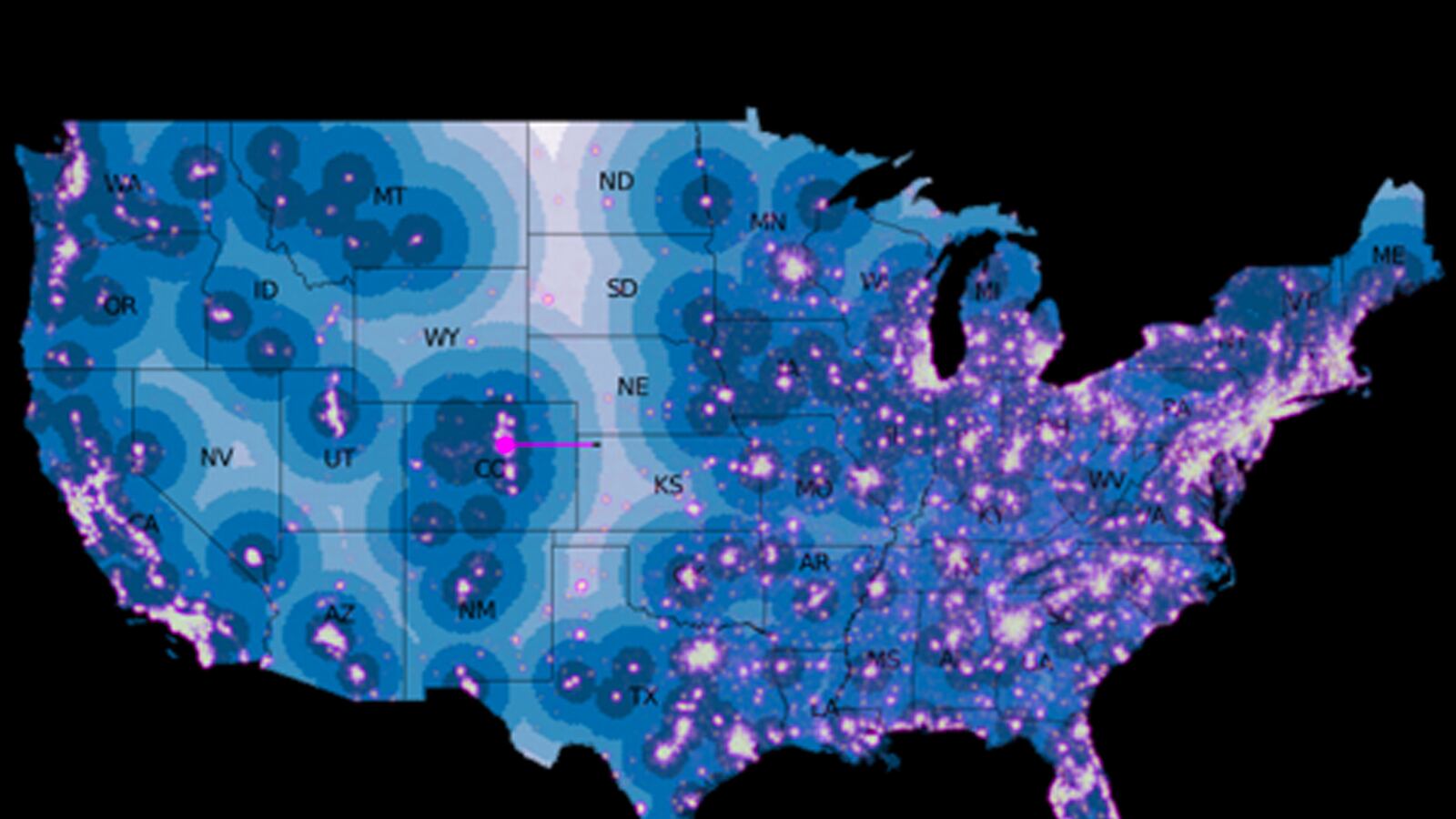Forty years ago Tuesday, the Supreme Court ushered in legal abortion for American women when it decided in Roe v. Wade. Today, states—particularly in the South and Midwest—are eroding that right by legislating hundreds of provisions intended to impede access with burdensome obstacles. To understand more fully the complex state of access to abortion services in America, The Daily Beast identified and confirmed the location of the country’s remaining 724 clinics and calculated the distance from every part of the country to its closest clinic. We compiled our list using data available from abortion advocacy groups and anti-abortion-rights sources, and then we called each clinic to verify their information to create as comprehensive a list as possible. We also took care to obscure exact address data. Here is some of what we found:

The Panhandle-Dakotas Divide
The clearest trend on the map is the dearth of clinics through the center of the country—from northern Texas through Kansas, Nebraska, South Dakota, Wyoming, and North Dakota. Roughly 400,000 women of reproductive age (between 15 and 44) live more than 150 miles from the closest clinic in this region. The county farthest away from an abortion clinic is Divide, N.D. All of these states except Wyoming require 24-hour waiting periods between the time a woman schedules an abortion and the procedure.
Often, the states with the fewest clinics also have more restrictions. These are six of the many states that recently curtailed access to medical abortion—also known as the abortion pill—by banning telemedicine, a method doctors use to prescribe medication to terminate a pregnancy over a video chat, a convenience to people who live in rural areas.
Expanded medical-abortion restrictions are a next battleground for anti-abortion-rights politicians, abortion advocates say.
Wait Times and In-Person Counseling
Mississippi, Missouri, Ohio, Wisconsin, and Arizona, among other states, also require in-person counseling, often 24 hours in advance of the procedure, which requires women to make two trips or to stay overnight, increasing the endeavor’s cost and time commitment.
Residents of Flagstaff, Ariz., for instance, would have to travel more than 100 miles to Phoenix and spend two days in the city to receive medical abortion pills. Arizona bans telemedicine and requires in-person counseling.
Wichita, Without a Clinic and Between Provisions
Since the 2009 murder of abortion provider George Tiller, Wichita, Kans., has been without an abortion clinic of any kind and is roughly three hours' travel from the nearest ones in Kansas City and in Tulsa and Norman, Okla. Women who visit the Oklahoma clinics will face a ban on telemedicine, while those who travel to Kansas City will be required to get an ultrasound.
Insurance Coverage
Some states ban private insurance policies from covering abortion except in cases of danger to life, rape, and incest. Idaho, Kentucky, and Nebraska, among others, will extend the limitation to plans purchased under the new health-insurance exchanges starting in 2014. Other states, including Alabama, Tennessee, and South Carolina, don’t limit private plans now but will start in 2014 under their health-insurance exchanges. Again, the states with the most restrictions are often in areas farthest from the closest clinics.







